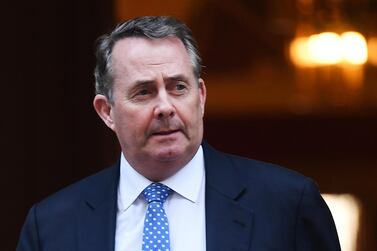The European Union has long taken pride in its single market, which lets companies compete across borders and consumers enjoy cheaper prices and a wider variety of goods. A renewed push toward building “European champions” risks putting these hard-fought gains at risk.
It may also be unworkable. The change in direction comes just as the bloc’s political leaders are taking a fresh interest in acquiring stakes in private companies, in the hope of influencing their management. Any European industrial champion would be at the mercy of transnational fights for control. It’s something that bedeviled Airbus – possibly Europe’s biggest multi-national corporate success – for years. While governments may be happy to have more influence over big companies, they won’t be so relaxed about any partner states trying to privilege their own interests within a cross-border business.
The European champion debate has been driven by the European Commission’s decision to block a rail merger between Germany’s Siemens and France’s Alstom. The move infuriated Paris and Berlin, who had argued that the combination was necessary to fight off competition from China. Peter Altmaier, Germany’s economy minister, and Bruno Le Maire, France’s finance minister, have unveiled a joint manifesto for a European industrial policy to try to make sure this kind of thing doesn’t happen again. Their proposal includes changing the current competition rules to make it easier to clear some mergers. France and Germany also want to grant the European Council (the leaders of the EU’s member states) the power to override the Commission in some cases. This would mean giving politicians the final say over some antitrust rulings.
The Franco-German approach is ostensibly motivated by a desire to make European companies better able to withstand global competition from the likes of the US and China (even though in the Alstom-Siemens case it was debatable how much of a threat was posed by the Chinese rail powerhouse CRRC). But the Altmaier-Le Maire initiative is also based on a false premise: There’s no evidence that bigger companies are more efficient than smaller ones.
A merger can generate efficiencies of scale, but it can also reduce the incentive to innovate because there’s less need to fend off competition. So-called “horizontal” mergers – between two firms that operate in the same industry – almost always lead to anti-competitive effects, including less choice for customers and higher prices. This is exactly what the single market was meant to prevent.
Unsurprisingly, governments can also be remarkably inconsistent when it comes to creating European champions. France may have been enthusiastic about the Alstom-Siemens rail merger, but it’s been a lot less keen about the sale of French shipbuilder STX to Fincantieri SpA, an Italian rival. Mr Le Maire says the deal will happen, but President Emmanuel Macron initially put a block on the stake sale. That’s a useful reminder that the passion for European champions typically stops at your national border.
Finally, creating a mega-company across more than one country is a lot easier than operating it with national interests at play. Politicians aren’t by nature inclined to step back and let managers get on with it. In fact, the passion for direct control is coming back. Last week, the Dutch government decided to buy a stake in Air France-KLM to match the one owned by the French government. Wopke Hoekstra, the Dutch finance minister, told the Financial Times that his government would use its new 12.7 per cent stake to make the airline “perform better”.
But the fear is that the carrier will now be entangled in endless disputes between France and the Netherlands, who will both want to defend domestic jobs and operations. These objectives are hardly those of private investors. Little wonder shares tanked on the announcement.
The Franco-German love for Frankenstein companies might delight M&A bankers, but it’s a recipe for disaster. It will weaken one of Europe’s assets – the single market – without producing more efficient corporations. Airbus’s performance has improved as its French and German state investors have eased their grip, but it’s still much less profitable than Boeing.The strength of the EU lies in its variety. It’s best to let winners emerge from healthy competition than to create them artificially in a politician’s lab.







